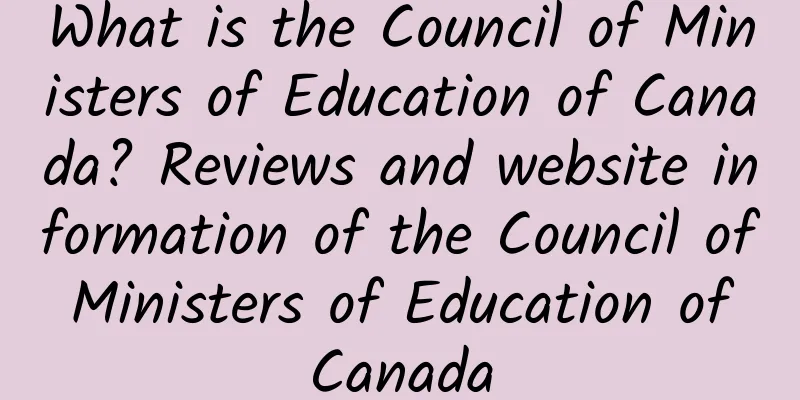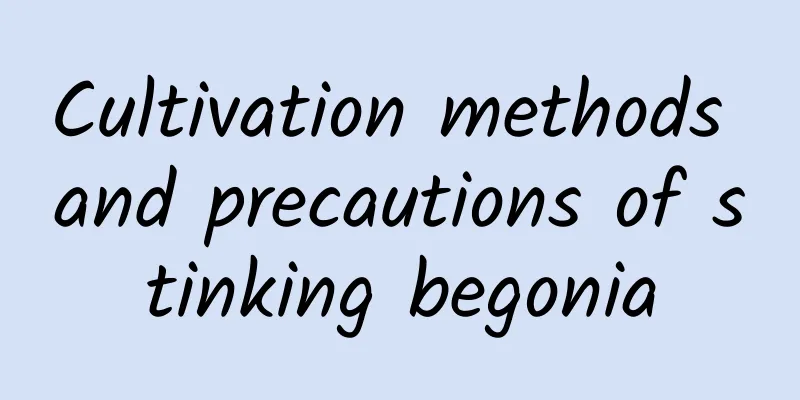What is the Council of Ministers of Education of Canada? Reviews and website information of the Council of Ministers of Education of Canada

|
What is the website of the Council of Ministers of Education of Canada? This website is the official website of the Council of Ministers of Education of Canada, which mainly provides information about the organization, educational projects, publications, educational news, international cooperation, etc. The website is available in English and French. Website: www.cmec.ca The Council of Ministers of Education, Canada (CMEC) is an organization composed of the education ministers of Canada's provinces and territories, dedicated to promoting cooperation and coordination in Canada's education system. As a national education organization, the Council of Ministers of Education, Canada plays an important role in promoting education policies, promoting educational equity, and improving education quality. Its official website (www.cmec.ca) is an important platform for the public to understand Canada's education policies, obtain educational resources, and participate in education discussions. Background and Mission of the Council of Ministers of Education of CanadaThe Council of Ministers of Education of Canada was established in 1967 to strengthen cooperation among the ministers of education of Canada's provinces and territories and to jointly address challenges in the field of education. Canada is a federal country, and education affairs are mainly the responsibility of the provincial and territorial governments. Therefore, the Council of Ministers of Education of Canada plays an important role in coordinating national education policies, promoting educational innovation and promoting educational equity. The Council's mission includes:
Functions and contents of the official websiteThe official website of the Council of Ministers of Education of Canada (www.cmec.ca) is its main channel for communication with the public, educators, policy makers and other stakeholders. The website provides rich content and resources, covering the following main sections: 1. IntroductionIn the "Institutional Profile" section, the website details the background, organizational structure, mission and vision of the Council of Ministers of Education of Canada. Users can use this section to learn about the history of the Council, its membership, and its roles and responsibilities in the Canadian education system. 2. Educational ProjectsThe "Education Project" section is one of the core contents of the website, which showcases various education projects and initiatives promoted by the Council of Ministers of Education of Canada. These projects cover multiple areas, including early childhood education, basic education, higher education, vocational education and lifelong learning. For example, the Council regularly evaluates the academic performance of Canadian students through the Pan-Canadian Assessment Program (PCAP) to provide data support for education policy making. 3. PublicationsThe Council of Ministers of Education of Canada regularly publishes various research reports, policy documents and educational resources for reference by the public and educators. In the "Publications" section, users can download or read these resources online. These publications cover a variety of topics such as education policy, teaching practice, and education evaluation, providing valuable reference materials for education researchers and practitioners. 4. Education NewsThe "Education News" section provides timely updates on the latest developments in the Canadian and international education fields. Users can learn about the latest activities, policy releases, and international cooperation progress of the Council of Ministers of Education of Canada through this section. In addition, the website also provides research results, success stories, and best practices in the field of education to help users better understand the development trends of education. 5. International cooperationThe Council of Ministers of Education of Canada actively participates in international education cooperation and maintains close cooperation with international organizations such as the United Nations Educational, Scientific and Cultural Organization (UNESCO) and the Organization for Economic Cooperation and Development (OECD). In the "International Cooperation" section, users can learn about Canada's contributions to international education, international projects it participates in, and educational exchange activities with other countries. Education policy and initiatives of the Council of Ministers of Education of CanadaThe Council of Ministers of Education of Canada plays an important role in promoting national education policy. The following are some of the important policies and initiatives promoted by the Council in recent years: 1. Pan-Canadian Assessment Program (PCAP)The Pan-Canadian Education Assessment Project is an important initiative of the Council of Ministers of Education of Canada, which aims to assess the performance of Canadian 13-year-old students in core subjects such as reading, mathematics and science. Through regular assessments, the Council can understand the strengths and weaknesses of education in provinces and regions and provide a scientific basis for education policy making. 2. Canadian Education Quality Index (CEQI)The Canadian Education Quality Index is a set of indicators used to measure the performance of Canada's education system. The indicators cover multiple dimensions such as student performance, educational equity, and allocation of educational resources, helping policymakers and the public to fully understand the current status and trends of Canadian education. 3. Aboriginal educationThe Council of Ministers of Education of Canada attaches great importance to Aboriginal education and is committed to promoting equity and quality in Aboriginal education. The Council helps Aboriginal students obtain quality education and promote their cultural heritage and identity through policy formulation, resource provision and research support. 4. Digital EducationWith the rapid development of information technology, the Council of Ministers of Education of Canada actively promotes the development of digital education. The Council helps the Canadian education system adapt to the challenges and opportunities of the digital age by formulating digital education strategies, supporting online learning platforms and training teachers. International Cooperation of the Council of Ministers of Education of CanadaThe Canadian Council of Ministers of Education actively participates in international education cooperation and has established cooperative relations with many international organizations and countries. The following are the main achievements of the Council in international cooperation: 1. Cooperation with the United Nations Educational, Scientific and Cultural Organization (UNESCO)The Council of Ministers of Education of Canada maintains close cooperation with UNESCO to promote global education development. The Council participates in many UNESCO education initiatives, including the Education 2030 Agenda and the Global Education Monitoring Report. 2. Cooperation with the Organization for Economic Cooperation and Development (OECD)The Council of Ministers of Education of Canada actively participates in OECD education programs, such as the Program for International Student Assessment (PISA). By participating in these programs, Canada is able to share its educational experience with other countries and learn from international best practices. 3. Bilateral cooperation with other countriesThe Council of Ministers of Education of Canada has established bilateral cooperation with many countries to carry out educational exchanges and cooperation. For example, the Council has signed cooperation agreements with the education departments of China, India, Germany and other countries to promote student exchanges, teacher training and joint research. The future direction of the Council of Ministers of Education of CanadaLooking ahead, the Council of Ministers of Education of Canada will continue to work to promote innovation and development of the Canadian education system. The following are the main directions for the Council's future development: 1. Promote educational equityThe Council of Ministers of Education of Canada will continue to focus on educational equity, especially educational opportunities for Aboriginal students, immigrant students, and students from low-income families. The Council will work to narrow educational gaps and ensure that all students have access to quality education by developing policies, providing resources, and supporting research. 2. Strengthen digital educationWith the rapid development of information technology, the Council of Ministers of Education of Canada will further strengthen the promotion and application of digital education. The Council will support online learning platforms, develop digital educational resources, and train teachers to master digital teaching skills to meet the educational needs of the digital age. 3. Deepen international cooperationThe Council of Ministers of Education of Canada will continue to deepen educational cooperation with other countries and international organizations, share Canada's educational experience, and learn from international best practices. The Council will actively participate in global education governance and contribute to global education development. 4. Support teachers’ professional developmentThe Council of Ministers of Education of Canada will increase its support for the professional development of teachers, provide more training opportunities and resources, and help teachers improve their teaching ability and professional quality. The Council will also promote the improvement of the professional status of teachers and attract more outstanding talents to join the education industry. ConclusionAs an important coordinating body of the Canadian education system, the Council of Ministers of Education of Canada has played an important role in promoting education policies, promoting educational equity and strengthening international cooperation. Its official website (www.cmec.ca) provides the public with a wealth of educational resources and information, and is an important platform for understanding Canada's education policies and practices. In the future, the Council of Ministers of Education of Canada will continue to be committed to promoting innovation and development of the Canadian education system, providing quality education for all students, and promoting social prosperity and progress. |
<<: Royal College of Surgeons in Ireland - Reviews and Website Information
Recommend
Smooth white porridge
Have you ever heard of the smooth white porridge? ...
What is Taunus Corporation like? Taunus Corporation reviews and website information
What is Taunus Corporation? Taunus Corporation is ...
What is the North Carolina Department of Tourism Services like? Reviews and website information for the North Carolina Department of Tourism Services
What is the North Carolina Tourism Services websit...
What are the effects and functions of drinking lotus root and pork ribs soup
After entering the cold winter, people like to co...
How to cook ten-grain porridge? The correct way to cook ten-grain porridge
Ten-grain porridge is a traditional Chinese healt...
Vegetables and herbs help fight lung cancer Which vegetables can fight cancer
I didn’t expect that the vegetables we eat every ...
How to make fish porridge
The method of making fish fillet 682 porridge is ...
What is Volvo Group like? Volvo Group reviews and website information
What is the Volvo Group website? Volvo Group (AB V...
How is Infiniti? Infiniti reviews and website information
What is Infiniti? Infiniti is a high-end brand of ...
What are the benefits of drinking millet and mung bean porridge regularly?
In summer, some people like to drink porridge to ...
The efficacy and function of Sanmin water The medicinal value of Sanmin water
Sanmin water is a drink made by boiling dried wil...
How to cook tomato and eggplant
I don't know if you have ever eaten tomato an...
How to make osmanthus porridge
How many methods do you know about making sweet-s...
The role and efficacy of cowpea
We should all have eaten cowpea, which is a very ...
The benefits of eating amaranth
Have you ever eaten amaranth? It is especially co...









